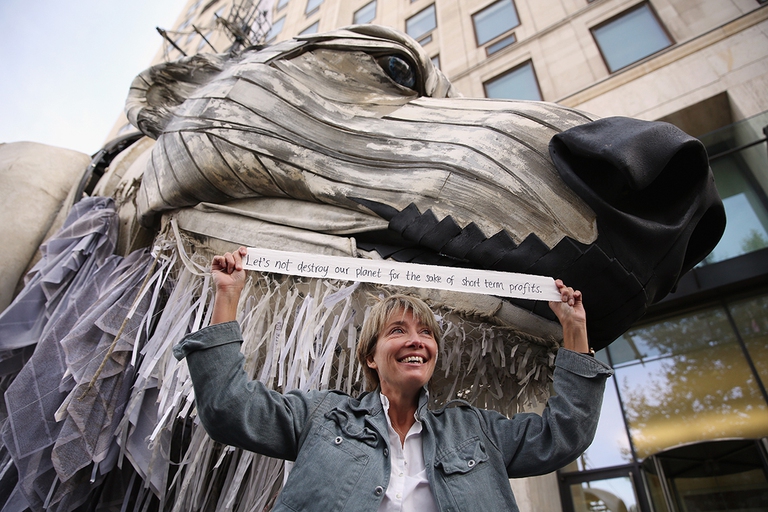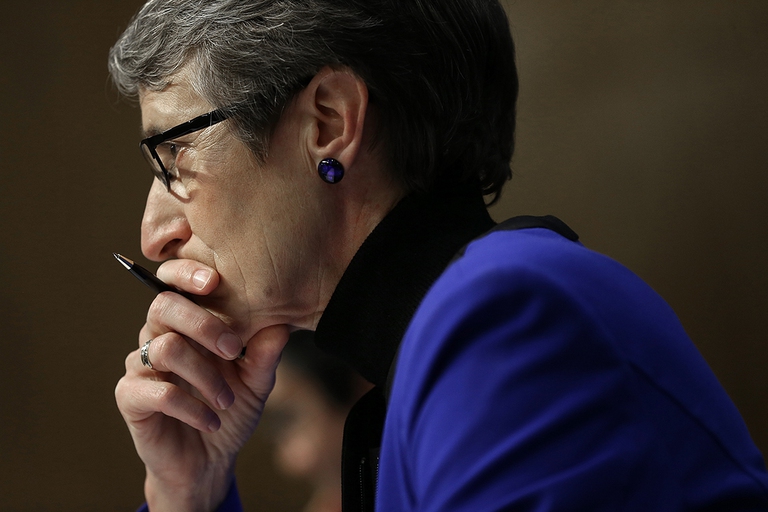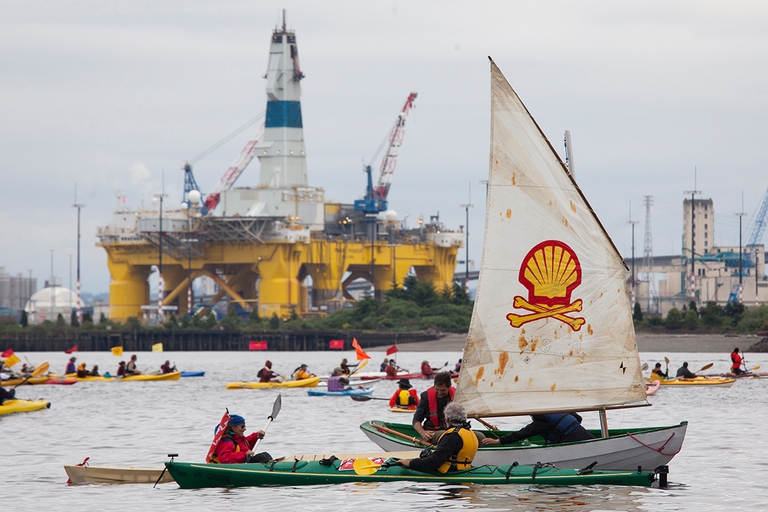
The United States will have to obey restrictions and won’t be able to expand oil exploration in the Arctic and Atlantic Oceans, against President Trump’s will.
“Yes. No. I don’t know. Let me think about it”. The never-ending soap opera on Arctic oil drilling seems to have come to an end. At least for the moment. After the decision made by Shell to “cease further exploration activity in offshore Alaska for the foreseeable future” due to their costs, the interior secretary Sally Jewell, in
“Yes. No. I don’t know. Let me think about it”. The never-ending soap opera on Arctic oil drilling seems to have come to an end. At least for the moment. After the decision made by Shell to “cease further exploration activity in offshore Alaska for the foreseeable future” due to their costs, the interior secretary Sally Jewell, in behalf of the government of the United States, announced the decision of going back and stop oil exploration activities in Chukchi and Beaufort seas.
Shell decided to abandon the Arctic in September following the drop of oil costs and after it invested seven years and $7 billion trying to find oil in the Arctic with no results, despite the US Geological Society has estimated that the Arctic holds up to 13% of the world’s undiscovered oil reserves.
Jewell said the decision to cancel leases scheduled for 2016 and 2017 has been made considering both the drop in oil costs on international stock exchanges and the bad conditions exploration activities were carried out.
Environmental organisations call for victory, but unfortunately the decision made by the Obama administration was largely due to mere interest evaluations, rather than NGOs pressures, many analysts say. It’s not a coincidence that Michael LeVine, Arctic campaigner for Oceana, said that “These are great steps in the right direction, but it is not the end of Arctic drilling forever”. Greenpeace, which has protested for months with kayakers in the Seattle Bay, has announced “it was raising its paddles in salute to Obama”.
The fact that oil is not economically convenient anymore has to be welcomed as good news, since it makes us understand that the old-school capitalism based on fossil fuel exploration and exploitation is giving way to a more sustainable and balanced development.
Siamo anche su WhatsApp. Segui il canale ufficiale LifeGate per restare aggiornata, aggiornato sulle ultime notizie e sulle nostre attività.
![]()
Quest'opera è distribuita con Licenza Creative Commons Attribuzione - Non commerciale - Non opere derivate 4.0 Internazionale.
The United States will have to obey restrictions and won’t be able to expand oil exploration in the Arctic and Atlantic Oceans, against President Trump’s will.
Oil isn’t attractive anymore. The coral reef and the ocean are worth more protecting instead. This is the historic decision made by Belize, small Central American country on the border with Mexico and Guatemala that has banned all future oil explorations within its territorial water in order to protect its great barrier reef. The Belize
These are the top news stories of 2017 and the people who have most left a mark on a year that has been intense yet also rewarding from the point of view of social and environmental sustainability.
After Pantelleria, Italy in 2014, the Republic of Malta in 2015, and Gran Canaria, Spain in 2016, this year the Italian island of Favignana, off the coast of Sicily, will host the fourth edition of the Greening the Islands International Conference on the 3rd and 4th of November. The event marks an important opportunity to tackle the topic of
On 23 October in Paris the mayors of London, Paris, Los Angeles, Copenhagen, Barcelona, Quito, Vancouver, Mexico City, Milan, Seattle, Auckland, and Cape Town committed to a series of ambitious targets to make their cities greener, healthier and more prosperous. By signing the C40 Fossil-Fuel-Free Streets Declaration, the pioneering city leaders pledged to procure only
The Canadian oil company Pacific E&P, who had been granted the right to explore and extract oil in the Peruvian Amazon by the national government, has halted its exploration activities in block 135 of the rainforest (which is divided into “blocks” of oil and gas exploration). The company released a statement saying it “has made the decision to relinquish its exploration
By Anne Hidalgo, Mayor of Paris Clover Moore, Lord Mayor of Sydney Yuriko Koike, Governor of Tokyo Patricia de Lille, Mayor of Cape Town The next four years will be crucial in determining if the world can avoid the worst impacts of climate change, keeping the global temperature rise to below 1.5 degrees. As the
People living near major roads and busy traffic are more at risk of developing dementia, according to a report analysing more than 6 million people.
Some of the most significant news stories of the year. From the Paris Agreement to the Colombian peace deal, here’s our 2016 in review: the last 12 months seen through the lens of sustainability.










